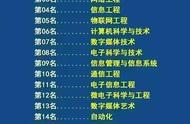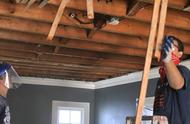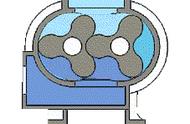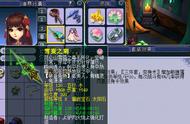Mr. Doherty Builds His Dream Life
Jim Doherty
There are two things I have always wanted to do -- write and live on a farm. Today I'm doing both. I am not in E. B. White's class as a writer or in my neighbors' league as a farmer, but I'm getting by. And after years of frustration with city and suburban living, my wife Sandy and I have finally found contentment here in the country.
多尔蒂先生创建自己的理想生活
吉姆·多尔蒂
有两件事是我一直想做的――写作与务农。如今我同时做着这两件事。作为作家,我和E·B·怀特不属同一等级,作为农场主,我和乡邻也不是同一类人,不过我应付得还行。在城市以及郊区历经多年的怅惘失望之后,我和妻子桑迪终于在这里的乡村寻觅到心灵的满足。
It's a self-reliant sort of life. We grow nearly all of our fruits and vegetables. Our hens keep us in eggs, with several dozen left over to sell each week. Our bees provide us with honey, and we cut enough wood to just about make it through the heating season.这是一种自力更生的生活。我们食用的果蔬几乎都是自己种的。自家饲养的鸡提供鸡蛋,每星期还能剩余几十个出售。自家养殖的蜜蜂提供蜂蜜,我们还自己动手砍柴,足可供过冬取暖之用。
It's a satisfying life too. In the summer we canoe on the river, go picnicking in the woods and take long bicycle rides. In the winter we ski and skate. We get excited about sunsets. We love the smell of the earth warming and the sound of cattle lowing. We watch for hawks in the sky and deer in the cornfields.这也是一种令人满足的生活。夏日里我们在河上荡舟,在林子里野餐,骑着自行车长时间漫游。冬日里我们滑雪溜冰。我们为落日的余辉而激动。我们爱闻大地回暖的气息,爱听牛群哞叫。我们守着看鹰儿飞过上空,看玉米田间鹿群嬉跃。
But the good life can get pretty tough. Three months ago when it was 30 below, we spent two miserable days hauling firewood up the river on a sled. Three months from now, it will be 95 above and we will be cultivating corn, weeding strawberries and killing chickens. Recently, Sandy and I had to retile the back roof. Soon Jim, 16 and Emily, 13, the youngest of our four children, will help me make some long-overdue improvements on the outdoor toilet that supplements our indoor plumbing when we are working outside. Later this month, we'll spray the orchard, paint the barn, plant the garden and clean the hen house before the new chicks arrive.但如此美妙的生活有时会变得相当艰苦。就在三个月前,气温降到华氏零下30度,我们辛苦劳作了整整两天,用一个雪橇沿着河边拖运木柴。再过三个月,气温会升到95度,我们就要给玉米松土,在草莓地除草,还要宰*家禽。前一阵子我和桑迪不得不翻修后屋顶。过些时候,四个孩子中的两个小的,16岁的吉米和13岁的埃米莉,会帮着我一起把拖了很久没修的室外厕所修葺一下,那是专为室外干活修建的。这个月晚些时候,我们要给果树喷洒药水,要油漆谷仓,要给菜园播种,要赶在新的小鸡运到之前清扫鸡舍。
In between such chores, I manage to spend 50 to 60 hours a week at the typewriter or doing reporting for the freelance articles I sell to magazines and newspapers. Sandy, meanwhile, pursues her own demanding schedule. Besides the usual household routine, she oversees the garden and beehives, bakes bread, cans and freezes, drives the kids to their music lessons, practices with them, takes organ lessons on her own, does research and typing for me, writes an article herself now and then, tends the flower beds, stacks a little wood and delivers the eggs. There is, as the old saying goes, no rest for the wicked on a place like this -- and not much for the virtuous either. 在这些活计之间,我每周要抽空花五、六十个小时,不是打字撰文,就是为作为自由撰稿人投给报刊的文章进行采访。桑迪则有她自己繁忙的工作日程。除了日常的家务,她还照管菜园和蜂房,烘烤面包,将食品装罐、冷藏,开车送孩子学音乐,和他们一起练习,自己还要上风琴课,为我做些研究工作并打字,自己有时也写写文章,还要侍弄花圃,堆摞木柴、运送鸡蛋。正如老话说的那样,在这种情形之下,坏人不得闲――贤德之人也歇不了。
None of us will ever forget our first winter. We were buried under five feet of snow from December through March. While one storm after another blasted huge drifts up against the house and barn, we kept warm inside burning our own wood, eating our own apples and loving every minute of it.我们谁也不会忘记第一年的冬天。从12月一直到3月底,我们都被深达5英尺的积雪困着。暴风雪肆虐,一场接着一场,积雪厚厚地覆盖着屋子和谷仓,而室内,我们用自己砍伐的木柴烧火取暖,吃着自家种植的苹果,温馨快乐每一分钟。
When spring came, it brought two floods. First the river overflowed, covering much of our land for weeks. Then the growing season began, swamping us under wave after wave of produce. Our freezer filled up with cherries, raspberries, strawberries, asparagus, peas, beans and corn. Then our canned-goods shelves and cupboards began to grow with preserves, tomato juice, grape juice, plums, jams and jellies. Eventually, the basement floor disappeared under piles of potatoes, squash and pumpkins, and the barn began to fill with apples and pears. It was amazing.开春后,有过两次泛滥。一次是河水外溢,我们不少田地被淹了几个星期。接着一次是生长季节到了,一波又一波的农产品潮涌而来,弄得我们应接不暇。我们的冰箱里塞满了樱桃、蓝莓、草莓、芦笋、豌豆、青豆和玉米。接着我们存放食品罐的架子上、柜橱里也开始堆满一罐罐的腌渍食品,有番茄汁、葡萄汁、李子、果酱和果冻。最后,地窖里遍地是大堆大堆的土豆、西葫芦、南瓜,谷仓里也储满了苹果和梨。真是太美妙了。
The next year we grew even more food and managed to get through the winter on firewood that was mostly from our own trees and only 100 gallons of heating oil. At that point I began thinking seriously about quitting my job and starting to freelance. The timing was terrible. By then, Shawn and Amy, our oldest girls were attending expensive Ivy League schools and we had only a few thousand dollars in the bank. Yet we kept coming back to the same question: Will there ever be a better time? The answer, decidedly, was no, and so -- with my employer's blessings and half a year's pay in accumulated benefits in my pocket -- off I went.第二年我们种了更多的作物,差不多就靠着从自家树林砍斫的木柴以及仅仅100加仑的燃油过了冬。其时,我开始认真考虑起辞了职去从事自由撰稿的事来。时机选得实在太差。当时,两个大的女儿肖恩和埃米正在费用很高的常春藤学校上学,而我们只有几千美金的银行存款。但我们一再回到一个老问题上来:真的会有更好的时机吗?答案无疑是否定的。于是,带着老板的祝福,口袋里揣着作为累积津贴的半年薪水,我走了。
There have been a few anxious moments since then, but on balance things have gone much better than we had any right to expect. For various stories of mine, I've crawled into black-bear dens for Sports Illustrated, hitched up dogsled racing teams for Smithsonian magazine, checked out the Lake Champlain "monster" for Science Digest, and canoed through the Boundary Waters wilderness area of Minnesota for Destinations.那以后有过一些焦虑的时刻,但总的来说,情况比我们料想的要好得多。为了写那些内容各不相同的文章,我为《体育画报》爬进过黑熊窝;为《史密森期刊》替参赛的一组组狗套上过雪橇;为《科学文摘》调查过尚普兰湖水怪的真相;为《终点》杂志在明尼苏达划着小舟穿越美、加边界水域内的公共荒野保护区。
I'm not making anywhere near as much money as I did when I was employed full time, but now we don't need as much either. I generate enough income to handle our $600-a-month mortgage payments plus the usual expenses for a family like ours. That includes everything from music lessons and dental bills to car repairs and college costs. When it comes to insurance, we have a poor man's major-medical policy. We have to pay the first $500 of any medical fees for each member of the family. It picks up 80% of the costs beyond that. Although we are stuck with paying minor expenses, our premium is low -- only $560 a year -- and we are covered against catastrophe. Aside from that and the policy on our two cars at $400 a year, we have no other insurance. But we are setting aside $2,000 a year in an IRA.我挣的钱远比不上担任全职工作时的收入,可如今我们需要的钱也没有过去多。我挣的钱足以应付每月600美金的房屋贷款按揭以及一家人的日常开销。那些开销包括了所有支出,如音乐课学费、牙医账单、汽车维修以及大学费用等等。至于保险,我们买了一份低收入者的主要医疗项目保险。我们需要为每一位家庭成员的任何一项医疗费用支付最初的500美金。医疗保险则支付超出部分的80%。虽然我们仍要支付小部分医疗费用,但我们的保险费也低--每年只要560美金--而我们给自己生大病保了险。除了这一保险项目,以及两辆汽车每年400美金的保险,我们就没有其他保险了。不过我们每年留出2000美元入个人退休金账户。
We've been able to make up the difference in income by cutting back without appreciably lowering our standard of living. We continue to dine out once or twice a month, but now we patronize local restaurants instead of more expensive places in the city. We still attend the opera and ballet in Milwaukee but only a few times a year. We eat less meat, drink cheaper wine and see fewer movies. Extravagant Christmases are a memory, and we combine vacations with story assignments...我们通过节约开支而又不明显降低生活水准的方式来弥补收入差额。我们每个月仍出去吃一两次饭,不过现在我们光顾的是当地餐馆,而不是城里的高级饭店。我们仍去密尔沃基听歌剧看芭蕾演出,不过一年才几次。我们肉吃得少了,酒喝得便宜了,电影看得少了。铺张的圣诞节成为一种回忆,我们把完成稿约作为度假的一部分……
I suspect not everyone who loves the country would be happy living the way we do. It takes a couple of special qualities. One is a tolerance for solitude. Because we are so busy and on such a tight budget, we don't entertain much. During the growing season there is no time for socializing anyway. Jim and Emily are involved in school activities, but they too spend most of their time at home.我想,不是所有热爱乡村的人都会乐意过我们这种生活的。这种生活需要一些特殊的素质。其一是耐得住寂寞。由于我们如此忙碌,手头又紧,我们很少请客。在作物生长季节,根本就没工夫参加社交活动。吉米和埃米莉虽然参加学校的各种活动,但他俩大多数时间也呆在家里。
The other requirement is energy -- a lot of it. The way to make self-sufficiency work on a small scale is to resist the temptation to buy a tractor and other expensive laborsaving devices. Instead, you do the work yourself. The only machinery we own (not counting the lawn mower) is a little three-horsepower rotary cultivator and a 16-inch chain saw.另一项要求是体力――相当大的体力。小范围里实现自给自足的途径是抵制诱惑,不去购置拖拉机和其他昂贵的节省劳力的机械。相反,你要自己动手。我们仅有的机器(不包括割草机)是一台3马力的小型旋转式耕耘机以及一架16英寸的链锯。
How much longer we'll have enough energy to stay on here is anybody's guess -- perhaps for quite a while, perhaps not. When the time comes, we'll leave with a feeling of sorrow but also with a sense of pride at what we've been able to accomplish. We should make a fair profit on the sale of the place, too. We've invested about $35,000 of our own money in it, and we could just about double that if we sold today. But this is not a good time to sell. Once economic conditions improve, however, demand for farms like ours should be strong again.没人知道我们还能有精力在这里再呆多久--也许呆很长一阵子,也许不是。到走的时候,我们会怆然离去,但也会为自己所做的一切深感自豪。我们把农场出售也会赚相当大一笔钱。我们自己在农场投入了约35,000美金的资金,要是现在售出的话价格差不多可以翻一倍。不过现在不是出售的好时机。但是一旦经济形势好转,对我们这种农场的需求又会增多。
We didn't move here primarily to earn money though. We came because we wanted to improve the quality of our lives. When I watch Emily collecting eggs in the evening, fishing with Jim on the river or enjoying an old-fashioned picnic in the orchard with the entire family, I know we've found just what we were looking for.但我们主要不是为了赚钱而移居至此的。我们来此居住是因为想提高生活质量。当我看着埃米莉傍晚去收鸡蛋,跟吉米一起在河上钓鱼,或和全家人一起在果园里享用老式的野餐,我知道,我们找到了自己一直在寻求的生活方式。
Summary:Mr. Doherty Builds His Dream Life
The passage mainly talked about the dream life of the author with his family on a farm, where the author could write and live. The author viewed his life in the country as a self-reliant and satisfying one, but sometimes the good life would get very hard. On the first winter, the author was fond of every minute instead with his family, which they would never forget, while the follow spring brought two floods, which made them amazed. After quitting his job, the author’s income was reduced, but he and his family were able to manage to get by. Besides, he ran a farm and benefited more from it. A tolerance for solitude and a lot of energy had made it possible for the family to enjoy their life in the country. What’s more, they also had found the lifestyle that they preferred in this place.
American Family Life: The Changing Picture
Donna Barron
It's another evening in an American household.
美国家庭生活:变化中的景象
唐娜·巴伦
这是美国家庭一个寻常的傍晚。
The door swings open at 5:30 sharp. "Hi, honey! I'm home!" In walks dear old Dad, hungry and tired after a long day at the office. He is greeted by Mom in her apron, three happy children, and the aroma of a delicious pot roast.门在5:30准时推开。“嗨,亲爱的!我回来了!”亲爱的老爸走了进来,他在办公室上了一天的班,肚子饿了,人也累了。迎接他的是系着围裙的妈妈,3个快乐的孩子以及炖肉诱人的香味。
After a leisurely meal together, Mom does the dishes. That, after all, is part of her job. The whole family then moves to the living room. There everyone spends the evening playing Scrabble or watching TV.全家人从容地吃完饭后,妈妈就刷洗碗碟。反正这是她的活。接着全家人聚在起居室。一个晚上大家玩玩牌,看看电视。
Then everyone is off to bed. And the next morning Dad and the kids wake up to the sounds and smells of Mom preparing pancakes and sausages for breakfast.随后各自上床睡觉。第二天早上,爸爸和孩子们在妈妈准备早餐发出的声响和薄饼、香肠散发的香味中醒来。
(1) What? You say that doesn't sound like life in your house? Well, you're not alone. In fact, you're probably in the majority. 什么?你说那听起来不像你府上的生活?其实,不仅仅是你一个人这么想。事实上,大多数人很可能都跟你一样这么想的。
At one time in America, the above household might have been typical. You can still visit such a home -- on television. Just watch reruns of old situation comedies. (2) Leave it to Beaver, for example, shows Mom doing housework in pearls and high heels. Dad keeps his suit and tie on all weekend. But the families that operate like Beaver Cleaver's are fewer and fewer. They're disappearing because three parts of our lives have changed: the way we work, the way we eat, and the way we entertain ourselves. Becoming aware of the effects of those changes may help us improve family life.上面描述的家庭可以说在美国曾一度相当典型。如今你仍能见到这样的家庭――不过得在电视里。只要看一看那些重播的情景剧老片子。例如,《交给比弗吧》一剧中妈妈带着珍珠项链、穿着高跟鞋做家务。爸爸整个周末都穿着西装,戴着领带。但像比弗·克立弗那样的家庭越来越少了。那样的家庭正在消失,因为我们生活中的三个部分发生了变化:我们的工作方式,餐饮方式以及娱乐方式。了解这些变化所带来的影响也许有助于我们改善家庭生活。
Let's look first at the changes in the way we work. Today the words "Hi, honey! I'm home!" might not be spoken by dear old Dad. Dear old Mom is just as likely to be saying them. A generation ago, most households could get along on one paycheck -- Dad's. Mom stayed home, at least until the children started school. But today, over half the mothers with young children go to work. An even greater percentage of mothers of older children are in the workforce. And the number of single-parent homes has mushroomed in the last thirty years.我们先来看一下我们工作方式的变化。今天,“嗨,亲爱的,我回家了!”这句话可能不是出自亲爱的老爸之口。亲爱的老妈也同样可能说这句话。在上一代,大多数家庭可以靠一份工资――爸爸的工资――维持。妈妈呆在家里,至少在孩子上学前是如此。但今天,一半以上有幼儿的母亲外出工作。在职人员中有大孩子的母亲的比例更高。而单亲家庭的数量在过去30年中急剧增长。
These changes in work have affected children as well as parents. When only Dad went out to work, children came home from school to Mom. (In TV situation comedies, they came home to Mom and home-baked cookies) Today, we'll find them at an after-school program or a neighbor's house. Or they may come home to no one at all. In every community, children are caring for themselves until their parents return from work. Are these children missing out on an important part of childhood? Or are they developing a healthy sense of self-reliance? These are questions that Mrs. Cleaver never had to deal with.工作方面的这些变化影响着家长以及孩子。当父亲一人外出上班时,孩子们放学回家有妈妈在。(在情景电视剧里,他们回家有妈妈在,还有家里做的饼干)如今,我们会在晚托班或邻居家里见到他们。要不他们就回到空无一人的家。在各社区,孩子们都自己照管自己,直到父母下班回家。这些孩子会不会失去童年时期本应有的一些重要的东西?还是会因此培养起一种健康的自立意识?这些问题是克立弗太太过去从来不用操心的。
In addition, Dad and now Mom are often gone from home longer than ever. Not too long ago, most men worked close to home. The office or factory was just downtown. Dad often walked to work or hitched a ride with a friendly neighbor. But no more.此外,爸爸,如今还有妈妈,在外的时间常常比以往任何时候都长。不多久前,大多数男人还就近工作。办公室或者工厂就在市区。爸爸经常走着去上班,或者顺路搭友好邻居的车。但现在不一样了。
Today's working men and women are commuters. They travel distances to work that would have made their parents gasp. Commutes of forty-five minutes or an hour are common. Workers travel on buses, subways, and crowded highways. Many leave their suburban homes at dawn and don't return until dark. No running home for lunch for today's commuter.今天的上班男女都是坐车来回的。他们上班距离之远会让他们的父母惊讶得倒抽一口凉气。45分钟或1小时的车程是常见的。上班族坐公共汽车、地铁,或开车行驶在交通拥挤的公路上。不少人一清早就离开位于郊区的家,一直要到天黑了才回来。今天的通勤族不再赶回家吃午饭。
And speaking of lunch, there's been a second big change in American family life. If both parents are away from home for long hours, who's whipping up those delicious meals in the kitchen? The answer, more and more, is nobody.说起午饭,那正是美国家庭生活的第二大变化。要是父母都长时间不在家,那谁在厨房里忙着准备美味的菜肴呢?越来越多听到的回答是没有人做饭。
These days, few people have time to shop for and prepare "home-style" meals. The Cleavers were used to dinners of pot roast or chicken. Potatoes, salad, and vegetables went with the main course, with pie or cake for dessert. But this kind of meal takes several hours to fix. People can't spend hours in the kitchen if they get home at 5:30.如今,很少人有时间采购、烹制“家常”饭菜。克立弗一家常常吃炖肉或炖鸡,除主菜外还有土豆、色拉、蔬菜,甜食是馅饼或蛋糕。但烧这种饭菜要花几个小时。要是人们5:30才回到家,就无法在厨房里呆上几个小时。
So what do working families eat? They choose meals that are easy to prepare or are already prepared. Fast food, takeout, and heat-and-serve dishes make up much of the modern American diet. Dad may arrive home with a bag of Big Macs and shakes. Mom may phone out for Chinese food or ask the local pizza parlor to deliver. And more and more people rely on microwaves to thaw frozen food in minutes.那么双职工家庭吃什么呢?他们选择容易烹制或已经烹制好的食品。快餐,外卖食物,加热即食的菜肴构成了当今美国食谱的很大一部分。爸爸可能带回家一大包巨无霸汉堡包和饮料。妈妈可能电话定购中国菜,或让附近的比萨店外送。越来越多的人依赖微波炉在几分钟内把冷冻食品解冻。
One consequence of these quickly prepared meals is that families spend less time dining together. And classic fast foods, like hamburgers and fries, are meant to be eaten on the run, not slowly enjoyed at the dinner table. The modern family no longer shares the evening meal. As a result, it no longer shares the day's news... or the feeling of togetherness.这些烹制简易的菜肴造成的后果之一是,一家人一起坐下吃饭的时间少了。传统的快餐,如汉堡包,炸薯条,是让人匆匆忙忙吃的,而不是坐在餐桌旁慢慢享用的。现代家庭不再一起享用晚餐。其结果是,大家不再相互交流一天的事,也感觉不到合家团聚的气氛。
Finally, what about after dinner? Is the family evening at least something the Cleavers could relate to?最后一点,晚饭之后又如何?晚上的家居生活总该跟克立弗家多少有几分相似了吧?
Not a chance.没有丝毫相似之处。
We don't have to look outside the home to see the changes. The modern American family entertains itself in ways the Cleavers would never have dreamed of.我们不必走出家门去看有什么变化。当今美国家庭的娱乐方式是克立弗家无从想像的。
Thirty years ago, families gathered around a radio each evening. Later, television took over. Most families had just one set, which they watched together. Today, television and computers bring a dizzying array of entertainment into the home. Cable television provides everything from aerobics classes to Shakespeare. VCRs expand the choices even more. (3) If there's nothing good on network TV or cable, the video store offers the best and worst of Hollywood: recent movies, cartoons, "adult" films, exercise programs, travel, sports, how-to tapes. Computer games, which make viewers part of the action, also provide excitement. Players can compete in the Olympics, search out aliens, or wipe out entire civilizations on their little screens.三十年前,家家户户每天晚上围坐着听收音机。后来电视机取而代之。大多数家庭只有一台电视机,全家人一起收看。如今,电视机和电脑将多得令人眩目的娱乐活动带入家庭。有线电视播出的节目从有氧操到莎士比亚戏剧无所不有。录像机更是扩大了选择性。要是网络电视或有线电视没有中意的节目,录像制品商店可提供好莱坞制作的品质迥异的各种节目:新近发行的电影、动画片、"成人"电影、体育锻炼节目、旅游、体育以及入门指南录像带。让收看人参与其间的电脑游戏也提供了相当的刺激。游戏者能在奥运会上施展身手,寻找外星人,或者在小小的屏幕上摧毁整个文明国家。
With all these choices, it makes sense to own more than one television set. The two-or-more-TV family used to be rare. (4) Nowadays, Dad might want to rent an action movie when Mom's cable shopping service is on. Or Junior is playing a let's-blow-up-Saturn video game while Sis wants to see The Simpsons. Why not invest in several sets? Then each family member can enjoy himself or herself in peace.有了那么多的选择,拥有一台以上的电视机也就合乎情理了。过去很少有人家拥有一台以上电视机。如今,妈妈在看她的有线电视销售服务节目的时候,爸爸可能想租一部动作片。而在女儿想看《辛普森一家》时,儿子却在玩《让我们炸毁土星》的电子游戏。何不多买几台呢?那样每一个家庭成员都可以互不干扰地看各自喜爱的节目。
What's wrong with this picture of today's family?当今家庭的这一景象有何弊端呢?
Only this. Today's Cleavers spend their evenings in front of their separate TV screens. Then they go to bed. The next morning, they rush off to their separate jobs (work and school). They come home at separate times. They eat separately. Finally, they return to their separate TV screens for another evening's entertainment. During all these times, when do they talk to each other or even see each other? When are they a family?只有一个弊端。今天的克立弗一家晚上各自守着自己的电视机。随后他们各自上床。第二天早上,他们匆匆忙忙各奔各的岗位(上班或上学)。他们在各自不同的时间回家。他们分头吃饭。最后,他们又各自回到自己的电视机前,各自进行晚上的娱乐活动。在所有这些时段当中,他们什么时候相互交谈或见面呢?家人什么时候才相聚呢?
Certain realities of modern life cannot change. One is the need, in most families, for both parents to bring home a paycheck. Another is the distance many of us must travel to work or to school. But must everything change? And must we lose the family structure in the process?现代生活的某些现实无法改变。其一是大多数家庭需要父母两个人的工资收入。其二是许多人必得去较远处上班或上学。可是,非得为此改变一切吗?我们非得在这一过程中丧失原有的家庭结构吗?
No one is suggesting that we go back to the 1950s. The Cleaver household was a fantasy even then, not reality. But we might borrow one important lesson from the Cleavers. It is that family life is just as important as work or play. If we agree, we'll find ways of spending more time together. We'll find things to share. And then there will be something right with the picture.没有人说我们应该回到五十年代去。克立弗家庭即使在当时也只是虚构而非现实。但我们或许能从这一人家获得一个重要的借鉴,即家庭生活和工作、娱乐同样重要。如果我们同意这一看法,我们就能设法找到更多时间聚在一起。我们就能找到共同的兴趣。那样的话,我们家庭生活的情景就颇为美妙了。
Summary:The Freedom Givers
The passage mainly talked about three persons, Josiah Henson, John Parker and Levi Coffin, who were the givers of freedom for black slaves in the American history. Besides, the author praised the exploits of civil-rights heroes who helped slaves travel the Underground Railroad to freedom by citing more examples. What’s more, it was high time to honor the heroes who helped liberate slaves by forging the Underground Railroad in the early civil-rights struggles in America. After winning his own freedom from slavery, John Parker helped other slaves to escape north to Canada and freedom. Supported by a strong religious conviction, the white man Levi Coffin risked himself to help many black slaves to escape. At last, by traveling the Underground Railroad, Josiah Henson reached his destination and became free.
,













